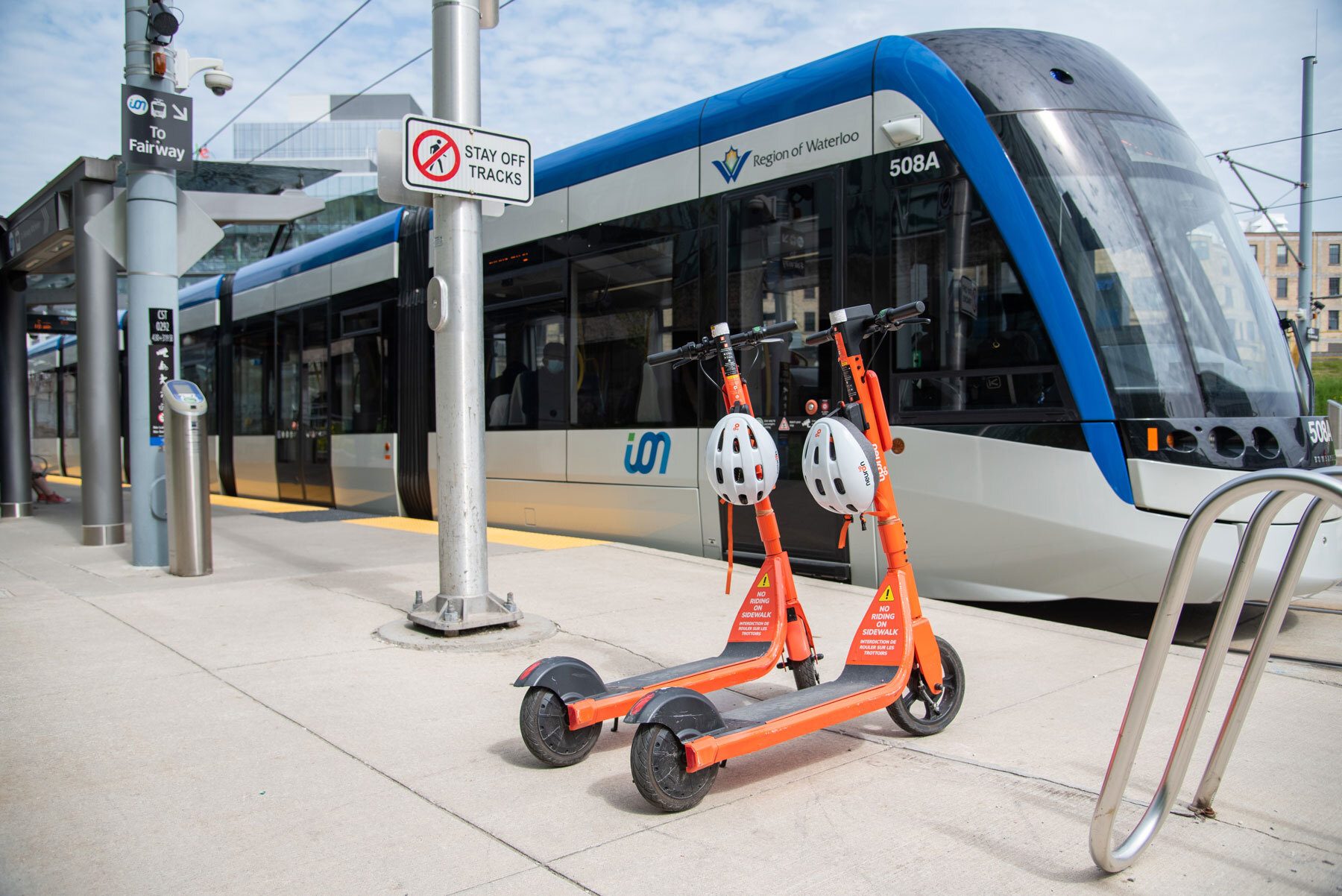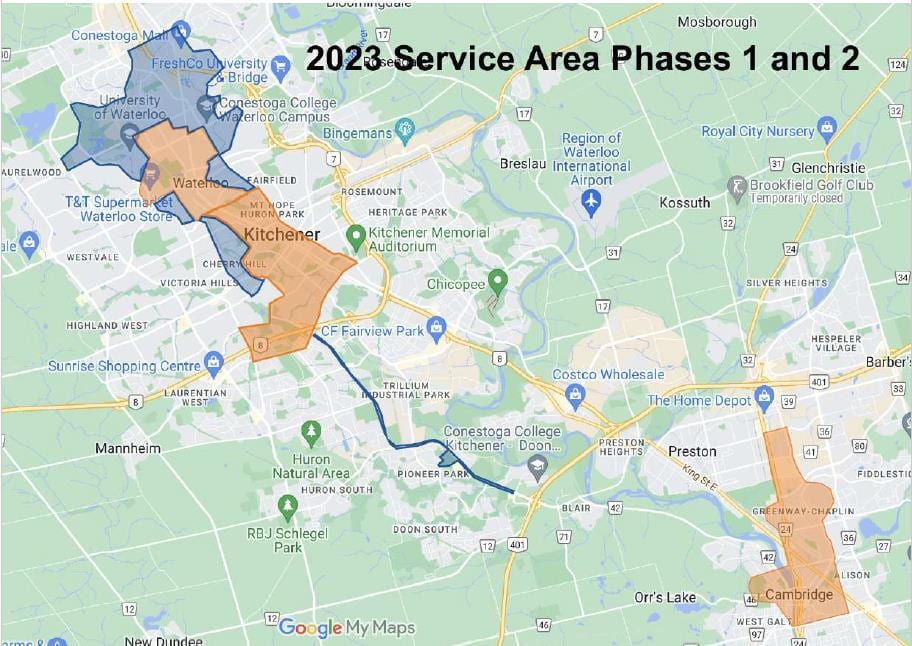
Community on board with
e-bikes and
e-scooters
Shared program provides new sustainable transportation option in Waterloo Region

In 2018 the community set a goal to reduce Greenhouse Gas (GHG) emissions by 80% by 2050. Each of us has a role to play in our shared goal. However, our 2023 GHG Inventory report shows that our collective transportation is the largest contributor to our Region’s overall community GHG emissions at 47- 49%.
So we got creative.
In 2023, Waterloo Region launched a network of shared e-bikes and e-scooters across Cambridge, Kitchener, and Waterloo.

The program provided a new, environmentally sustainable travel choice for the community that helped us reduce our greenhouse gas emissions.

Created through a partnership between Neuron Mobility, the Region and Cities, the network ran through the downtown cores of all three cities, linking with transit stops and stations to connect to Grand River Transit’s buses and trains.
Hundreds of e-scooters and e-bikes were available for residents on a daily basis.

The program injected an estimated
$8.2 million
into the Waterloo region economy.
46,000
riders
190,000
trips
360,000
kms

x 65






As a result, the community prevented over 12 tonnes of carbon dioxide emissions, the equivalent of roughly 192 mature trees.
37%
of trips started or ended at transit stops or stations.

The program will return in 2024, and expansion is planned for future years.
The areas in orange represent the initial service area at the time of launch, with the areas in blue showing the expansions to the service area that occurred over the 2023 riding season.
The shared e-bike and e-scooter program helps the Region of Waterloo achieve its climate change goals, supports multi-modal transportation, and contributes to an interconnected transportation network for the whole community to enjoy.
Frequently Asked Questions
Wondering how to get started?
Riders can download Neuron Mobility’s mobile app from the App Store or Google Play and get set up to ride in a matter of minutes. Here are some commonly-asked questions:
Do I need a helmet?
E-scooter and e-bike riders must wear a helmet. All Neuron vehicles are equipped with adjustable helmets that are unlocked through the Neuron app. You can also use your own helmet.
Is there an age limit?
Riders must be 16 years or older. Riders under 18 must have guardian consent.
Can I have a passenger?
Only one rider is allowed per e-scooter or e-bike at a time.
How much does it cost?
There is a pay-per-ride option, paid with the Neuron app. The rate is $1.15 + $0.35 per minute, plus tax. For people using more frequently, there are also 3-Day, Weekly and Monthly Pass options with flat rates as low as $3.73 per day.
Where can I find an e-scooter or e-bike?
The app can also be used to locate available vehicles. The program first rolled out in the downtown areas of Cambridge, Kitchener and Waterloo, and near transit stations.
What if I’ve never ridden an e-scooter or e-bike before?
You can learn about safely riding e-scooters at the Scoot Safe website. Choose “Waterloo Region” as your community for free videos and quizzes to help prepare you for your first scooter journey, or just to refresh your knowledge.
More safety information can be found at grt.ca/CycleAndWalk.





